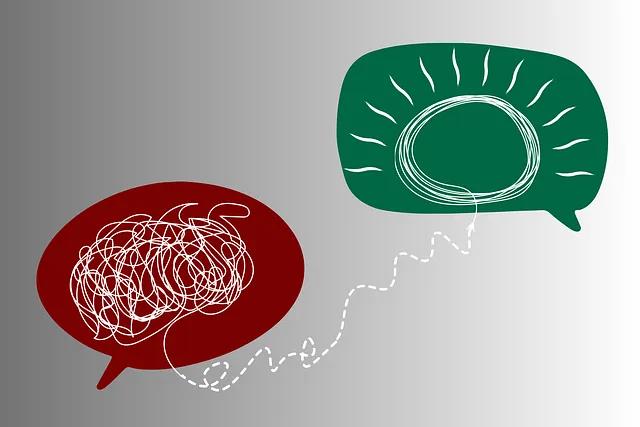The Kaiser Permanente Behavioral Health Center Boulder emphasizes that stress is a complex response to triggers, with chronic stress leading to serious health issues. They offer tailored solutions like Resilience Building and Emotional Healing Processes to address root causes. Cognitive Behavioral Therapy (CBT) changes negative thought patterns for mental health, while mindfulness practices reduce daily stress and anxiety. Regular physical activity, recommended by the center, releases endorphins and promotes focus, clarity, and social connections through group exercises. A healthy lifestyle including nutritious food, sleep, and strong social ties further enhances well-being and resilience at Kaiser Permanente behavioral health center Boulder.
Stress reduction is a vital aspect of maintaining optimal well-being, and at the Kaiser Permanente Behavioral Health Center Boulder, we offer comprehensive strategies to manage it effectively. This article explores various methods to combat stress, from cognitive behavioral therapy (CBT) to mindfulness practices and physical exercise. By understanding the causes and impacts of stress, individuals can make informed choices regarding their mental health and embrace a balanced lifestyle. Discover practical tips tailored by experts at Kaiser Permanente to foster resilience against daily strains.
- Understanding Stress: Causes and Impact at Kaiser Permanente Behavioral Health Center Boulder
- Cognitive Behavioral Therapy (CBT): A Powerful Tool for Stress Management
- Mindfulness and Meditation Practices to Reduce Daily Strain
- Physical Exercise as a Natural Stress Reliever: Benefits and Activities
- Healthy Lifestyle Choices: Nutrition, Sleep, and Social Connections for Well-being
Understanding Stress: Causes and Impact at Kaiser Permanente Behavioral Health Center Boulder

At Kaiser Permanente Behavioral Health Center Boulder, understanding stress goes beyond its dictionary definition. Stress is a complex physiological and psychological response to various internal and external triggers, known as stressors. These can range from demanding work schedules and financial pressures to interpersonal conflicts or personal losses. Recognizing these causes is crucial because chronic stress can have profound impacts on both mental and physical health. This includes heightened risk of anxiety disorders, depression, cardiovascular diseases, and a weakened immune system.
The center offers comprehensive solutions tailored to address the root causes of stress. Programs such as Resilience Building initiatives focus on empowering individuals with coping strategies to better manage stressors. Social Skills Training enhances interpersonal interactions, fostering healthier relationships that can mitigate stress. Emotional Healing Processes leverage evidence-based therapies to address underlying emotional trauma contributing to stress. These holistic approaches aim to strengthen individuals’ ability to navigate life’s challenges, promoting overall well-being and resilience at Kaiser Permanente Behavioral Health Center Boulder.
Cognitive Behavioral Therapy (CBT): A Powerful Tool for Stress Management

Cognitive Behavioral Therapy (CBT) is a powerful tool for managing stress and promoting emotional well-being. Offered by many behavioral health centers, including Kaiser Permanente Boulder, CBT focuses on identifying and changing negative thought patterns and behaviors that contribute to stress and anxiety. By understanding how thoughts, feelings, and actions are interconnected, individuals can develop strategies to challenge and reframe distorted thinking, thereby reducing stress and improving overall mental health.
This evidence-based approach is particularly effective for those dealing with stress-related issues like depression prevention or the need for inner strength development. CBT encourages active participation in the healing process, empowering individuals to take control of their emotional responses. Through this therapeutic journey, one can learn coping mechanisms that not only help manage current stress levels but also build resilience for future challenges, fostering a more balanced and fulfilling life.
Mindfulness and Meditation Practices to Reduce Daily Strain

Mindfulness and meditation practices have emerged as powerful tools to combat the daily strain that many individuals face. At the Kaiser Permanente behavioral health center Boulder, experts emphasize the importance of these techniques in promoting emotional well-being. By focusing on the present moment and cultivating a sense of calm, mindfulness helps reduce stress and anxiety, allowing individuals to navigate life’s challenges with greater resilience.
Incorporating regular meditation into one’s self-care routine development can significantly contribute to overall mental health. These practices encourage empathy building strategies, enabling people to foster deeper connections and enhance their emotional responses. Through dedicated time for introspection and relaxation, individuals can experience improved focus, better sleep, and a heightened sense of inner peace, all of which are essential components of a balanced lifestyle.
Physical Exercise as a Natural Stress Reliever: Benefits and Activities

Physical Exercise as a Natural Stress Reliever: Benefits and Activities
Regular physical activity is a powerful tool in combating stress, offering numerous benefits for both mental and physical well-being. The Kaiser Permanente behavioral health center Boulder emphasizes that exercise releases endorphins, often referred to as ‘feel-good’ hormones, which can significantly improve mood and reduce stress levels. This natural process provides a healthier alternative to relying on stimulants or other temporary fixes. Moreover, engaging in physical exercises helps redirect focus away from stressors, fostering a sense of calm and mental clarity.
Various activities can be employed to achieve these effects, catering to different preferences and fitness levels. Activities like walking, jogging, swimming, yoga, and even dancing are excellent choices. For instance, the Mental Health Policy Analysis and Advocacy and Crisis Intervention Guidance teams often recommend incorporating these exercises into daily routines. Additionally, Stress Management Workshops Organization initiatives highlight how group activities can enhance social connections while promoting stress reduction through collective experiences.
Healthy Lifestyle Choices: Nutrition, Sleep, and Social Connections for Well-being

Maintaining a healthy lifestyle is a cornerstone of stress reduction practices, as advocated by experts at the Kaiser Permanente behavioral health center Boulder. Nutrition plays a vital role in mental well-being; incorporating nutrient-rich foods and staying hydrated can significantly impact your mood and energy levels. A balanced diet, rich in fruits, vegetables, whole grains, and lean proteins, provides essential vitamins and minerals that support brain function and emotional resilience.
Additionally, prioritizing sleep and social connections is crucial for overall mental health. Adequate rest allows the body to recharge and consolidate memories, enhancing cognitive function and emotional regulation. Social interactions, whether with family, friends, or support groups, offer a sense of belonging and provide valuable coping skills development opportunities. Building and nurturing these relationships can serve as a robust defense mechanism against stress and contribute to a positive mental health policy analysis and advocacy framework.
Stress reduction is a comprehensive journey, and with the guidance from experts at Kaiser Permanente Behavioral Health Center Boulder, individuals can unlock powerful tools like CBT, mindfulness practices, physical exercise, and healthy lifestyle choices. By integrating these methods into daily routines, one can effectively navigate life’s challenges, promote well-being, and find tranquility in today’s fast-paced world.






